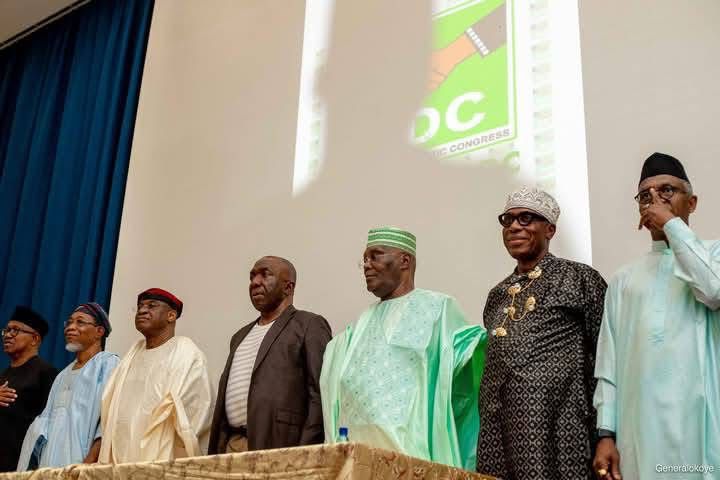
When Power Mongers Regroup: Inside the ADC Circus
A coalition of letdowns, By Olabode Opeseitan
The ADC coalition is the crudest joke ever by an opposition group desirous of wresting power from the ruling party in Nigeria.
There is little or no current electoral value. No vision was shared apart from a desperation to grab power at all costs. No alternative superior plan was disclosed. The coalition has little pedigree of excellence in public service to showcase.
Take, for instance, the record of Rauf Aregbesola. As Minister of the Interior, he failed to resolve any of the challenges he inherited in the prisons, immigration services, and border management throughout his tenure. In stark contrast, his successor, Olubunmi Ojo, has, within just two years, transformed the ministry. The backlog of passport applications has been cleared nationwide, and it is now significantly easier for Nigerians to obtain passports both at home and abroad. Immigration services at Nigerian airports have been automated, greatly improving efficiency and giving citizens a renewed sense of pride. Notably, border control has also seen substantial improvement.
Scholars should list this as a case study on how not to form a political coalition. It was a big letdown.
This comparison makes it clear: having been given the opportunity to demonstrate capability and falling short, it is ridiculous to claim to offer better prospects than those who have succeeded in addressing the very issues you neglected.
Another telling example is Abubakar Malami, the former Attorney General of the Federation. Under his watch, the Economic and Financial Crimes Commission (EFCC)—an agency reporting directly to him—was mired in controversy, from persistent allegations of corruption against Malami himself to the EFCC’s mishandling of recovered assets and poor prosecution records. Today, however, recovered loots are transparently channelled into funding critical national projects, such as the student loan scheme, marking a clear departure from the past.
These examples underscore the point: the coalition’s leading figures have already had their chance to serve and left much to be desired. Their track records do not inspire confidence in their ability to deliver superior governance or meaningful change.
Scholars should list this as a case study on how not to form a political coalition. It was a big letdown.
